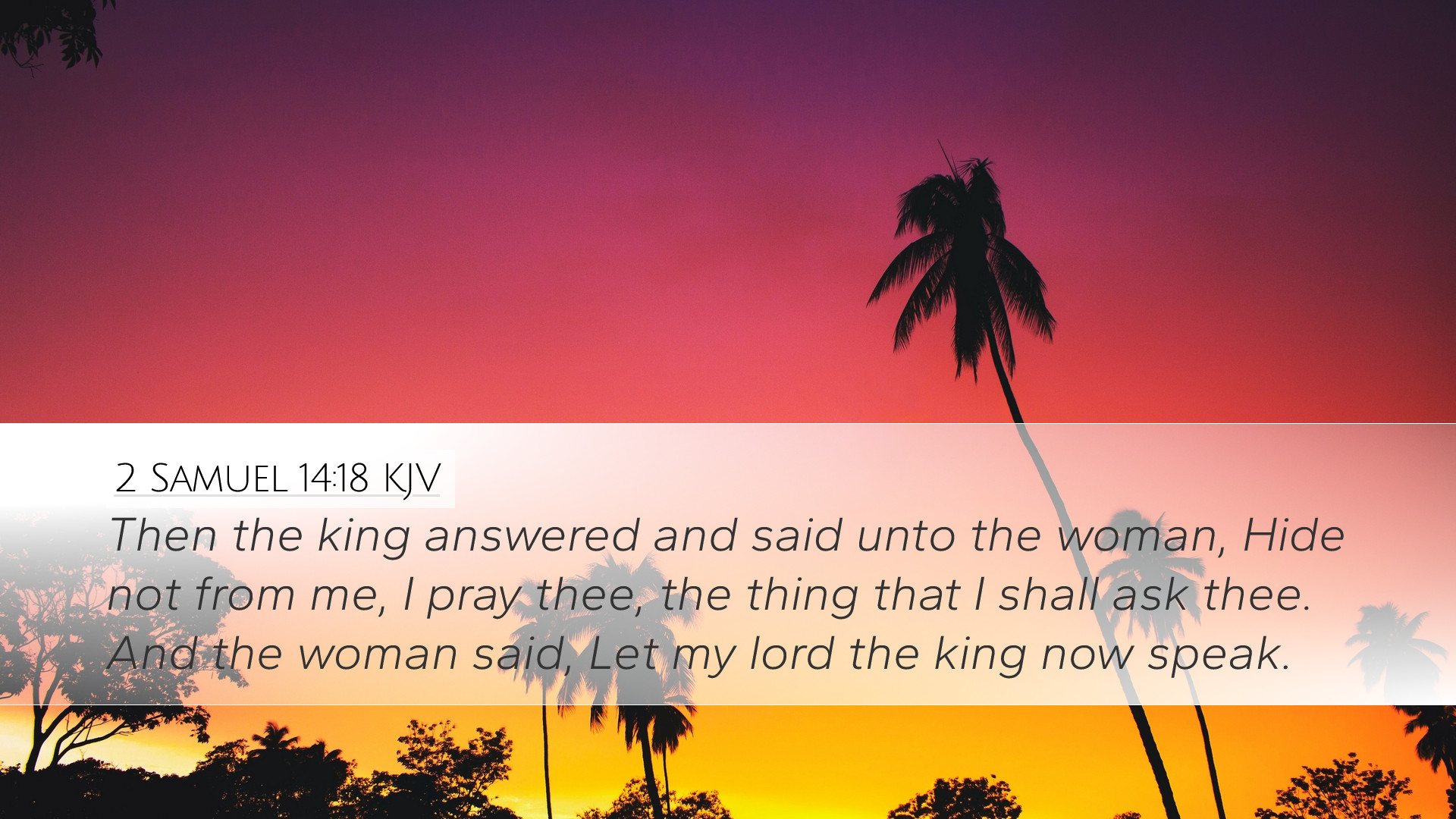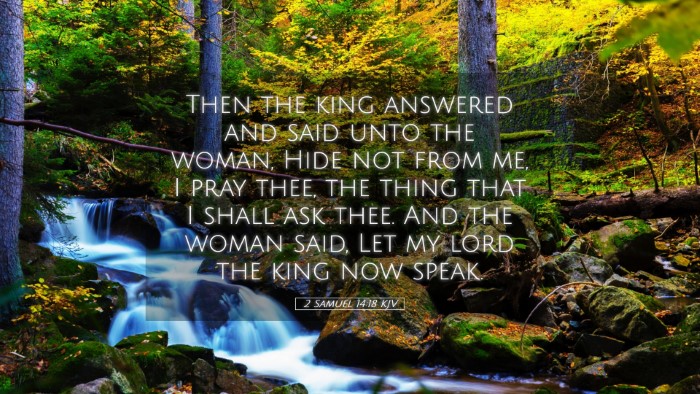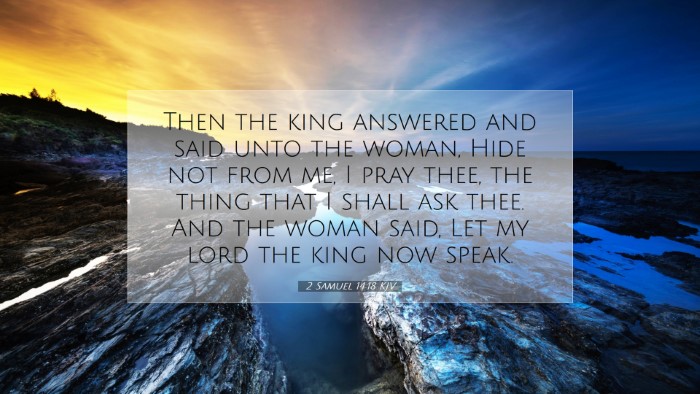Commentary on 2 Samuel 14:18
Text of the Verse: "Then the king answered and said, 'Is not the hand of Joab with thee in all this?' And the woman answered and said, 'As thy soul liveth, my lord the king, none can turn to the right hand or to the left from aught that my lord the king hath spoken: for thy servant Joab, he bade me, and he put all these words in the mouth of thine handmaid.'" (2 Samuel 14:18, KJV)
Contextual Overview
Historical Background: The narrative of 2 Samuel 14 takes place during a tumultuous period in David's reign. The chapter revolves around the wise woman of Tekoa, who is sent by Joab to plead for Absalom, David’s estranged son. This passage reflects the complexities of political maneuvering and familial reconciliation in David's life.
Theological Insights
Divine Sovereignty and Human Agency
In this interaction, we see the intricate workings of God's providence through human actions. The character of Joab serves as a pivotal point in the fulfillment of God's plan for David's family. Matthew Henry emphasizes that while Joab's tactics may be cunning, God is ultimately in control, suggesting that even flawed agents can serve a divine purpose.
The Role of Wisdom
Albert Barnes points out the significant role of wisdom in this verse. The woman demonstrates her shrewd understanding of David's character, embodying the wisdom that is essential for navigating complex social and political dynamics. Her ability to articulate her plea mirrors the wisdom found in Proverbs, where the fear of the Lord is the beginning of knowledge.
Kingdom Dynamics
David's response highlights the nature of leadership and counsel within the kingdom. The verse exposes how leaders must discern the motives behind their advisers' recommendations. Adam Clarke notes that David's acknowledgment of Joab's influence reflects the delicate balance of trust and discernment in leadership.
Character Analysis
Joab's Influence
Joab is portrayed as a complex character, both loyal and manipulative. While he desires reconciliation between David and Absalom, his means of achieving that end reveal a darker cunning. Matthew Henry suggests that Joab's actions are a double-edged sword; on one hand, he seeks peace in the household of David, yet on the other, his methods may sow further discord.
The Wise Woman of Tekoa
The wise woman serves as an instrument of God's providence. Her strategy in approaching David demonstrates intelligence and bravery, commanding respect and attention from a king. Albert Barnes highlights that she represents the unfortunate yet vivid reality of the human condition—pleading for mercy and reconciliation amid familial strife.
Pastoral Reflections
This verse offers rich material for pastoral teaching on the themes of reconciliation, wisdom in leadership, and the multifaceted nature of human relationships. Adam Clarke urges pastors to address the complexities of human motives when guiding their congregations, reminding them that divine purpose often works through imperfect vessels.
Wisdom in Counseling
Pastors and counselors can draw from this passage the importance of wise counsel. The woman's approach can serve as a model for how to navigate difficult conversations, emphasizing that understanding the hearts of individuals is crucial in promoting healing.
Encouragement for Reconciliation
Leaders within the church may face similar situation—where estrangement exists among members. This passage encourages them to pursue peace actively and may foster environments where reconciliation can occur, reflecting the greater narrative of the Gospel.
Concluding Thoughts
2 Samuel 14:18 offers profound insights into human relationships and divine intervention. As seen through the reflections of various commentators, the passage not only informs the historical context of David's reign but also carries timeless truths relevant to contemporary ministry and personal faith.
Emphasizing the interconnectedness of human decisions and divine sovereignty, this verse serves as a reminder of the complexities involved in leadership, reconciliation, and the pursuit of wisdom as followers of Christ.


